democracynow.org
Stories:

Jesse Williams' Powerful BET Awards Speech: "We're Done Watching Whiteness Use and Abuse Us"
Actor Jesse Williams is best known for his role on the TV show "Grey’s Anatomy." On Sunday night, he earned a standing ovation when he addressed the BET Awards. As he accepted the Humanitarian Award, Williams paid homage to police shooting victims, including Rekia Boyd, Sandra Bland, Eric Garner and Tamir Rice, who would have turned 14 on Saturday. "Police somehow manage to de-escalate, disarm and not kill white people every day," Williams says. "We are going to have equal rights and justice in our own country, or we will restructure their function and ours."
TRANSCRIPT
This is a rush transcript. Copy may not be in its final form.
AMY GOODMAN: We turn now to actor Jesse Williams. Oh, he’s best known for his role on the TV show Grey’s Anatomy. But on Sunday night, he earned a standing ovation when he addressed the BET Awards. As he accepted the Humanitarian Award, Jesse Williams paid homage to police shooting victims, including Rekia Boyd and Tamir Rice, who would have turned 14 years old on Saturday if he hadn’t been killed by police in Cleveland. We turn now to Jesse Williams’ speech.
JESSE WILLIAMS: Before we get into it, I just want to say, you know, I brought my parents out tonight. I just want to thank them for being here, for teaching me to focus on comprehension over career, that they made sure I learned what the schools were afraid to teach us. And also I thank my amazing wife for changing my life.
Now, this award, this is not for me. This is for the real organizers all over the country—the activists, the civil rights attorneys, the struggling parents, the families, the teachers, the students—that are realizing that a system built to divide and impoverish and destroy us cannot stand if we do. All right? It’s kind of basic mathematics. The more we learn about who we are and how we got here, the more we will mobilize.
Now, this is also, in particular, for the black women, in particular, who have spent their lifetimes dedicated to nurturing everyone before themselves. We can and will do better for you.
Now, what we’ve been doing is looking at the data. And we know that police somehow manage to de-escalate, disarm and not kill white people every day. So what’s going to happen is we are going to have equal rights and justice in our own country, or we will restructure their function and ours.
Now, I got more, y’all. Yesterday would have been young Tamir Rice’s 14th birthday. So I don’t want to hear anymore about how far we’ve come, when paid public servants can pull a drive-by on a 12-year-old playing alone in a park in broad daylight, killing him on television and then going home to make a sandwich. Tell Rekia Boyd how it’s so much better to live in 2012 than it is to live in 1612 or 1712. Tell that to Eric Garner. Tell that to Sandra Bland. Tell that to Darrien Hunt.
Now the thing is, though, all of us in here getting money, that alone isn’t going to stop this. All right? Now, dedicating our lives—dedicating our lives to get money, just to give it right back for someone’s brand on our body, when we spent centuries praying with brands on our bodies, and now we pray to get paid for brands on our bodies?
There has been no war that we have not fought and died on the front lines of. There has been no job we haven’t done. There’s no tax they haven’t levied against us, and we’ve paid all of them. But freedom is somehow always conditional here. "You’re free," they keep telling us, "but she would have been alive if she hadn’t acted so free." Now, freedom is always coming in the hereafter. But you know what, though? The hereafter is a hustle. We want it now.
And let’s get—let’s get a couple things straight. Just a little side note. The burden of the brutalized is not to comfort the bystander. That’s not our job. All right? Stop with all that. If you have a critique for the resistance, for our resistance, then you better have an established record of critique of our oppression. If you have no interest—if you have no interest in equal rights for black people, then do not make suggestions to those who do. Sit down.
We’ve been floating this country on credit for centuries, yo, and we’re done watching and waiting while this invention called whiteness uses and abuses us, burying black people out of sight and out of mind, while extracting our culture, our dollars, our entertainment like oil—black gold—ghettoizing and demeaning our creations, then stealing them, gentrifying our genius and then trying us on like costumes before discarding our bodies like rinds of strange fruit. The thing is, though—the thing is that just because we’re magic doesn’t mean we’re not real.
AMY GOODMAN: That’s actor Jesse Williams speaking at the BET Awards, established by Black Entertainment Television. He won the Humanitarian Award on Sunday night. Jesse Williams stars in Grey’s Anatomy. He is a board member of the Advancement Project and was the executive producer of the documentary Stay Woke: The Movement for Black Lives Matter.
When we come back, climate chaos. We’ll look at what’s happened in West Virginia, with the massive floods that have taken more than two dozen lives, and we’ll go to California, where the wildfires rage. Stay with us. ... Read More →

Plaintiff in SCOTUS Abortion Case Celebrates Historic Win But Says Struggle for Clinics Isn't Over
In the most significant victory for abortion rights in a generation, the Supreme Court has struck down provisions of a sweeping anti-choice law in Texas. Justice Anthony Kennedy joined Justice Stephen Breyer and all three women justices on the Supreme Court, condemning the restrictions as an undue burden on access to abortion. We speak with lead plaintiff Amy Hagstrom Miller about the historic victory and what it will take for shuttered clinics to reopen.
TRANSCRIPT
This is a rush transcript. Copy may not be in its final form.
AMY GOODMAN: In the most significant victory for abortion rights in a generation, the Supreme Court has struck down provisions of a sweeping anti-choice law in Texas. Justice Anthony Kennedy joined Stephen Breyer and all three women justices on the court, striking down the restrictions as an undue burden on access to abortion. The lead plaintiff in the case, Amy Hagstrom Miller of Whole Woman’s Health, celebrated the ruling outside the Supreme Court.
AMY HAGSTROM MILLER: Today’s decision marks a turnaround for Texas and for our country. But let me be clear, a win doesn’t mean the struggle is over. First, clinics don’t reopen overnight. We have a daunting task ahead of us to determine whether and how to reopen our health centers that were forced to shut their doors over the past several years, renewing leases, hiring staff and working with the communities that we previously served to help us reopen for care. And second, this decision only addressed two of the many, many restrictions that women face to get abortion care in Texas. Now we must redouble our efforts across the country to end similar restrictions across the states that push abortion out of reach for so many women.
AMY GOODMAN: Nancy Northup of the Center for Reproductive Rights also spoke outside the Supreme Court.
NANCY NORTHUP: The decision was a complete and total vindication of the plaintiffs’ claims. And we’re not surprised, because the trial record was strong, the facts are there. It is clear this law was passed with the intent to shut down clinics. It had that devastating effect. And we are very pleased that the Supreme Court could see through what was happening, and make clear. And this is going to make a difference. There are cases and cases across the nation in which this is—we have been attacking these kind of underhanded laws. And today’s victory is going to make a huge difference in being able to push this back. And we hope that politicians who have been passing these underhanded laws will start to do the responsible thing and let women have their health and rights in their states.
AMY GOODMAN: The Texas Legislature passed HB 2, the sweeping anti-choice law, in 2013, despite a people’s filibuster led by an 11-hour stand by Texas State Senator Wendy Davis. In Monday’s ruling, the Supreme Court rejected provisions requiring abortion clinics to meet the costly standards of hospital-style surgery centers and mandating doctors obtain admitting privileges at a nearby hospital. Already about half of Texas’s more than 20 abortion clinics have closed; more than 40 abortion—more than half of the 40 abortion clinics have closed in Texas. If the provisions had been allowed to come into full effect, advocates warned it would have left Texas with about 10 abortion clinics, clustered in four metropolitan areas. On Monday, in her concurring opinion, Supreme Court Justice Ruth Bader Ginsburg wrote, quote, "It is beyond rational belief that H.B. 2 could genuinely protect the health of women, and certain that the law 'would simply make it more difficult for them to obtain abortions.'"
Monday’s ruling means similar restrictions in other states are most likely also unconstitutional. Kansas, Oklahoma and Wisconsin all have current laws blocked by courts. In the South, courts have also blocked admitting privileges laws in Alabama, Arkansas, Louisiana and Mississippi.
For more, we go directly to Washington, D.C., where we’re joined by Amy Hagstrom Miller, the founder and CEO of Whole Woman’s Health, which operates abortion clinics in Texas, the lead plaintiff in this landmark case known as Whole Woman’s Health v. Hellerstedt. Miller has been working in abortion care since 1989.
Amy Hagstrom Miller, welcome back to Democracy Now! First, your reaction to this historic Supreme Court ruling?
AMY HAGSTROM MILLER: Oh, I’m just beyond elated. Not only did we get a victory for the women and families all across Texas, but the ruling was broad enough to give relief all across the country, which is what we hoped all along that we would be able to do. We really were able to illustrate the undue burden that’s put upon people by onerous regulations like this, and tell the stories of the women and families all across the state who were truly affected directly. And so I’m proud of being able to lead the lawsuit and proud of being able to tell those stories and bring them to the forefront.
AMY GOODMAN: So, tell us exactly what this means in Texas. What effect did these restrictions have that were passed in 2013?
AMY HAGSTROM MILLER: So, these restrictions, as you said, Amy, you know, closed down many facilities. And what that means is that women have rights on paper that doesn’t actually really exist for them in reality. Women had to travel hundreds of miles in order to obtain basic healthcare. They had to take multiple days off work, go through multiple visits. The vast majority of women we serve are already mothers, and so they had to get childcare and arrange for transportation—and all of this in order to obtain a right that they’re supposed to have on paper. And so, what happened is you had many women, you know, having to spend more, having to travel longer, and then some people just having to take matters into their own hands, who were blocked from accessing the healthcare that they wanted through the professional medical people that used to be in their community.
AMY GOODMAN: So, let’s go back to 2013, when Texas’s anti-abortion bill was passed. But first, it was temporarily blocked by a filibuster by State Senator Wendy Davis, who spoke for nearly 11 hours. I want to go to the clip of Senator Davis speaking at a rally after the victory.
SEN. WENDY DAVIS: Now, I know a great number of us have felt discouraged about the current state of affairs here. Some of us have felt mad. Today is different, though. Don’t you feel it? We feel hope. We’ve had an opportunity to be inspired by each other’s actions in our democracy. And we’ve witnessed how much we can accomplish when we reclaim our power and require accountability.
AMY GOODMAN: So, State Senator Wendy Davis stands on the floor for 11 hours, and they run the clock out—people, hundreds of people, if not a thousand, in the Texas Capitol. The law couldn’t pass that night. But Governor Perry then called a special session of the Legislature, and they passed it. Amy Hagstrom Miller, what happened next, in this three years? The third anniversary was Saturday of the filibuster.
AMY HAGSTROM MILLER: Yeah, yeah. There were thousands and thousands of people in the Capitol that day. And what happened next is that the law went into effect a few months later, and half of the clinics closed when just the admitting privileges requirement went into effect. A few months later, the ambulatory surgical center requirement went into full effect, and we went all the way down to only six facilities that were able to be open throughout the state. And this is the second-largest state, both in population and in land mass. We’re talking about 5.4 million women of reproductive age who had no access to healthcare, because they had to travel hundreds of miles. For that time period when the law was in full effect, there were only six facilities, and, like you said, they were in the major metropolitan areas—Dallas-Fort Worth, Austin, Houston, San Antonio. And previously, there was a distribution of clinics that were local, in the people’s communities, where people needed to access them, without the onerous burdens of further transportation.
We were able to get an injunction that blocked the ambulatory surgical center requirements from going into effect, and that also blocked the admitting privileges from going into effect, on behalf of women in the Rio Grande Valley and El Paso, because we were able to demonstrate that this law had a disproportionate effect on those populations. And so, that was the first step that restored some access, that preserved upwards of about 20 clinics to be able to stay open for these last few years.
And now, today, with the victory that we had yesterday, we have, on paper, the ability to reopen the facilities that were shuttered by this sham law initially. Like I said in my statement yesterday, it’s going to take some time to restore the fabric of healthcare that was destroyed by this law. It’s going to take some time to rebuild those clinics. Most of us had to let our leases go. We had to—I had to sell a building, because you can’t pay a mortgage on a facility for three years when you don’t have any patients, and you can’t—you’re blocked from, you know, offering healthcare services. So our physicians have gotten other work, our staff have other jobs. And so, the rebuilding of the facility and the relicensing of the facilities now is going to take some time for us to be able to rebuild the community. But the victory is here. Not only do we have the ability to reopen facilities, but we have stopped this wave of anti-abortion legislation that’s really spread all across the Midwest and the South for years now. And I think that sends a really strong signal that politicians can’t go this far and can’t interfere with women’s ability to access the healthcare with the dignity that they deserve.
AMY GOODMAN: I want to turn to a clip from the film Trapped, which premiered at the Sundance Film Festival. In this clip, we hear Marva Sadler, the director of clinical services at Whole Woman’s Health, your center, as she walks us through an ambulatory surgery center and shows all the regulations the clinic had to comply with under the provisions struck down Monday by the Supreme Court.
MARVA SADLER: We can’t have any freestanding oxygen machines. The suction has to be in the wall. And that is for every bed in pre-op, and then you’ll also notice it for every bed in PACU or aftercare. I don’t know that we’ve ever used any of these things in the walls in this clinic ever.
This is our pharmacy here, which has to be locked up. The drugs always expire, because we never use them. And to replace those drugs, I would say, a month, we spend about $1,100, throwing out expired medications and replacing them.
Another thing you’ll see here that you don’t see in the clinics are the linen buckets that we have here. We have to—we have to have a linen company come out. We can’t use disposables. So, usually, in a clinic, because it’s such a quick procedure, she undresses from the waist down, and that’s all. Here, she has to get completely undressed and into a hospital gown before she can go into the OR.
And this is our operating room. And the question we hear from patients all the time is "Are you going to cut me? Am I being cut?" Because that’s what an operation is, you know? We hear that more times than not, unfortunately. This is the same exact building and the same exact setup that you would bring someone who’s having open-heart surgery. No different. No different. Same exact setup.
AMY GOODMAN: Viewers can stream the film online for free for a limited time at PBS.org/independentlens/watch-video. And then, in this clip in Trapped, Marva Sadler of Whole Woman’s Health talks about having to turn away a patient seeking an abortion.
MARVA SADLER: In order to see her, I need to put her to sleep. And in order to do that, I need a nurse anesthetist. And because of this crazy law, it is impossible to find people to work for us. She’s 13 years old, and she is a victim of rape, and she drove four hours from McAllen to San Antonio. And we had to turn her away, and there was nothing I could do to save her. And so, now, if she has a procedure—and that "if" is huge—she’ll have to go all the way to New Mexico and pay $5,000 and get there and spend three days. It will never happen. We know it won’t.
AMY GOODMAN: So, Amy Hagstrom Miller, that clip from Trapped, which premiered this year at Sundance and is now playing on PBS. This means all of that stops now, as a result of the Supreme Court, in Texas?
AMY HAGSTROM MILLER: So, I’m so proud of Marva. It was so delightful to talk to her yesterday. She was in Texas, and we had everybody on speakerphone from all of our clinic sites, and it was just a big celebration. What this means is that we are no longer forced to provide abortion care in the ambulatory surgical center environment only. We are allowed to resume care in clinics, where we can have the appropriate physical plant and the appropriate environment for the abortion services. And the things that Marva talked about—the onerous physical plant regulations, the extra medicines, the sort of, you know, complicated medical setup that doesn’t really apply to abortion care services—are no longer going to be required. We’ll be able to offer tea to our patients in the recovery room. We’ll be able to offer the ability for women to bring their loved ones into the procedure room with them and into the recovery room with them—kinds of things that we’re able to do in our clinic-based settings that were prohibited in the ambulatory surgical center environment.
AMY GOODMAN: So there were 40 abortion clinics in Texas before this began. Now the state is down to 20. You say that it’s going to take time. What do you expect? Do you expect that—how quickly do you expect there to be more clinics, overall, not only your own, Whole Woman’s Health?
AMY HAGSTROM MILLER: Yeah, yeah. So, currently, there’s 19 facilities open. Nine of them are ambulatory surgical centers, and there’s 10 clinic facilities that have made it through these last three years of—you know, we call it at Whole Woman’s Health the age of uncertainty, where people have opened and closed and had to deal with privileges and preparing physical plant requirements, etc. Most of us, like I said, who had the other facilities that had to close, have had to let the facility go, have had to, you know, sever the lease or sell the buildings. And so, I think what we’re going to see is many of us, Whole Woman’s Health included, trying to figure out where will we be able to reopen, what will the process be for finding a lease and finding a building and restoring the staffing and the physicians. And the second part will be: What’s the process going to be now for us to apply for a new license for abortion services in the state of Texas after we’ve had this win? How is that process going to be for us? And I think, you know, none of us really know how it’s going to be. And so, I think we’ll see a couple—a couple of us probably try as soon as we could. And, you know, I think it’s important to also realize that part of the abortion facility work is operational, and it’s healthcare—you know, Healthcare 101. And so, we have to figure out how to raise funds for acquiring the equipment, acquiring the medicines and the staffing and those kinds of things, in order to run a top-notch facility. And that isn’t something that can happen overnight.
AMY GOODMAN: And finally, Amy Hagstrom Miller, what does this mean for other states? For example, in Mississippi, it has an admitting privileges law that could shutter the last abortion clinic in the state.
AMY HAGSTROM MILLER: Correct. This was the—you know, we wanted to bring this suit, because it was the right thing to do and to stand on the right side of history, to stand up against these politicians that lied to the Texan public and lied to the American public. And one of our hopes was that we could get a good legal standard that would allow relief beyond the Texas borders, to our sisters and brothers in Mississippi, Alabama, Wisconsin. Yesterday I was surrounded by other independent providers who were from those states, who made the pilgrimage to D.C. yesterday and to stand arm in arm as we talked. And so, we were with some of the people you’ve seen in Trapped: Dr. Parker, Gloria Gray, my friend Tammy from North Dakota, my friend Renee from Michigan and my friend Claire from Pennsylvania—a lot of these people who have gone through this kind of onerous regulation across the country.
And to all of us, this ruling has meaning, because what we saw is the Supreme Court take a stand and say this burden has gone too far, and give us a definition of "undue burden" and really eviscerate the idea that health and safety was at the purpose of what the Texas Legislature was up to. And they really shed light on the sham and really took our evidence and took the evidence of science and fact, and put it forward in this decision in a way that’s going to give relief to many people.
AMY GOODMAN: Amy Hagstrom Miller, we want to thank you for being with us, founder and CEO of Whole Woman’s Health, which operates abortion clinics in Texas. She is the lead plaintiff in the landmark case Whole Woman’s Health v. Hellerstedt. Miller has been working in abortion care since 1989. Tomorrow on Democracy Now!, we’ll speak with a woman who argued the case before the Supreme Court. It was her first time at the court. Stephanie Toti will be our guest. Stay with us. ... Read More →

As Extreme Weather Sweeps Across U.S., Is New Democratic Platform on Climate Change Too Weak?
Extreme weather is sweeping across the United States, from scorching heat in the Southwest to uncontrollable wildfires in California, to deadly flooding in Appalachia. In West Virginia, at least 23 people have died in once-in-a-thousand-year flooding, and a number of people remain missing across the state. Meanwhile, wildfires are raging up and down the state of California. At least two people have died, and hundreds of homes have been destroyed. May was the 13th straight month to smash global temperature records, amid increasing human-fueled global warming. We speak with Michael Mann, a professor of atmospheric science at Penn State University. Mann was in Phoenix last weekend to testify before the Democratic National Platform Draft Committee meeting.
TRANSCRIPT
This is a rush transcript. Copy may not be in its final form.
AMY GOODMAN: This is Democracy Now!, democracynow.org, The War and Peace Report. I’m Amy Goodman, as we turn to extreme weather sweeping the United States, from scorching heat in the Southwest to uncontrollable wildfires in California, to deadly flooding in Appalachia. In West Virginia, at least 23 people have died in a once-in-a-thousand-year flood. West Virginia Governor Earl Ray Tomblin has declared a state of emergency in 44 counties and has deployed the National Guard to help with search and rescue efforts. A number of people remain missing across West Virginia. Meanwhile, wildfires are raging up and down the state of California. At least two people have died, and hundreds of homes have been destroyed. On Thursday, Kern County Fire Department Chief Brian Marshall spoke out.
FIRE CHIEF BRIAN MARSHALL: This is a lot of damage. This is going to go down as the most destructive wildland fire in Kern County’s history. And these people, they’ve been displaced, and they want to go home. So that’s why we’re here today, to start that process.
AMY GOODMAN: All this extreme weather comes after scientists confirmed May was the 13th straight month to smash global temperature records amidst increasing human-fueled global warming.
For more on climate change and extreme weather, we’re joined by three guests. In State College, Pennsylvania, we’re joined by Michael Mann, professor of atmospheric science at Penn State University, was in Phoenix last weekend for the Democratic National Platform Draft Committee meeting. In Sacramento, California, we’re joined by Ken Pimlott, the director of the California Department of Forestry and Fire Protection and a 30-year fire service veteran. And in Richwood, West Virginia, we’re joined by Mayor-elect Bob Henry Baber. Richwood is one of the towns hardest hit by the flash flooding. Bob is also the first member of the Mountain Party to be elected to public office in West Virginia.
We welcome you all to Democracy Now! We’re going to go directly to West Virginia. Oh, I’ve just heard that we’re having a little trouble with the line, and so we’re going to turn to Michael Mann at Penn State University in the AccuWeather studios. Can you talk about the significance of, well, where you just were—Arizona—the temperatures, what, topping like 120 degrees, and what’s happening in West Virginia to California?
MICHAEL MANN: Sure. Thanks, Amy. It’s good to be with you. So, I was out in Phoenix about a week ago giving testimony to a committee hearing for the Democratic National Platform Committee, and I was talking about the reality of climate change and the fact that the impacts of climate change are no longer subtle. And I pointed to various examples, some of which you’ve listed already. But one of those examples was the fact that, one or two days later, Phoenix was going to be experiencing not just extreme heat, but record heat. And, in fact, we’ve seen a doubling of the rate of record-breaking heat in the U.S. over the past several decades. That means we’ve literally taken the dice and loaded them so that sixes, if you will, come up twice as often as they ought to, not one in six times, but one in three times. We’ve doubled the odds of these extreme weather events, extreme heat and many other types of extreme weather events, like unprecedented floods, unprecedented droughts, unprecedented superstorms.
AMY GOODMAN: So, you were at the Democratic Platform Committee that took place in where? In Phoenix, which was like what? A hundred and six degrees? What did you tell them?
MICHAEL MANN: I did. It was 106, but I told them that a day later it was going to be flirting with 120 degrees, record heat. And what I pointed out was the fact, again, that the impacts of climate change are no longer subtle. It used to be the case that climate change was sort of this abstract concept, and you needed to sort of really dig into the data and the model output to really find the signal of climate change. Well, we now see the signal of climate change with our own two eyes. It plays out before us in the 24-hour news cycle, in the headlines of the newspapers we read. And so, that was a part of my message. Part of my message was also that it’s not too late to solve this problem, but it’s going to take concerted action. And in particular, we need to put a price on carbon. We need to level the energy market playing field so that renewable energy, which is not degrading our planet in the same way, can more fairly compete with fossil fuel energy. And one of the things I recommended was that the platform really embrace this.
AMY GOODMAN: And what kind of language have Democrats put into the platform around climate change?
MICHAEL MANN: Well, it’s a pretty strong platform. It commits to a rapid de-escalation of our burning of fossil fuels. It commits to meeting our energy needs with 100 percent renewable energy by the middle of the century. And it’s pretty tough in the language that it uses in condemning fossil fuel interests that have knowingly misled the public about the nature and threat of climate change. So I thought it was a strong—a strong platform. There are others who feel that—you know, who would have liked to see more specific language, for example, about a carbon tax, about policies about fracking. I think it sort of took a big-picture approach, and we will need to work out those details, if we’re going to tackle this problem. We will need to tackle—you know, the devil is in the details, as they say.
AMY GOODMAN: What do you say to the presumptive Republican nominee, Donald Trump, who dismisses climate change—human-induced climate change almost entirely? It was one of the reasons he said he would not go to where the pope was, when he came to New York, because he talked about climate change and human beings exacerbating it.
MICHAEL MANN: Yeah, well, you know, to use the language of Winston Churchill, this is an age of consequences. And it’s an age for serious people. We are dealing with serious problems, none of them more serious than the threat of catastrophic climate change. And we don’t have time to squander. We don’t have time to engage in silly debates about whether the problem even exists. And unfortunately, the standard-bearer of the Republican Party, Donald Trump, does deny that the problem even exists. Look, there’s a worthy debate to be had about policy, about what we do to combat this problem. There is no longer a worthy debate to be had about whether the problem exists. We have to get past that. And unfortunately, right now we have a Republican Party that seems committed to the notion that climate change is a myth. Not all Republicans. There are some very—there are some real leaders even within the Republican Party on the issue of climate change, folks like Bob Inglis of South Carolina. But, unfortunately, their party has been seized by the Koch brothers and fossil fuel interests, who are doing everything they can to prevent any progress from being made.
AMY GOODMAN: When you say anything they can, what exactly are they doing?
MICHAEL MANN: Well, they’re literally poisoning not just our atmosphere, but the public discourse. The Koch brothers and other fossil fuel interests have literally spent tens of millions of dollars in a massive disinformation campaign to convince the public that climate change is a hoax, that it’s not real, that it’s not a problem. It’s precisely what the tobacco industry did in decades past. And now we see the fossil fuel industry using the very same playbook to try to fool the American people, the public, into thinking that there isn’t a problem, that we don’t have to incentivize this shift away from fossil fuels, towards renewable energy. But the fact is, we do need to do that, if we are going to avert catastrophic climate change.
AMY GOODMAN: In a moment, we’re going to go to West Virginia and California—West Virginia, where it looks like two dozen people have died in the most recent once-in-a-thousand-year flood, and California, the wild raging fires. Can you connect these two?
MICHAEL MANN: Yes. I mean, we—climate change has literally changed the fabric within which all weather now occurs. The atmosphere has about 5 percent more moisture than it did a century ago because of the warming of the atmosphere. Warmer air holds more moisture. And so, one of the things that we’ve long predicted—and we’re seeing it play out—is that we see more extreme precipitation events, more extreme rainfall events, these thousand-year floods that we’re seeing in South Carolina, in Texas, around the world, that clearly is—it bears the fingerprint of human-caused climate change, the fact that we are seeing so many more extreme floods. At the same time—it might seem contradictory, but it’s not—even though you get more rainfall, when it occurs, rainfall events in many regions, like North America, become less frequent, especially during the summer. And so, you get more extreme drought. You get the unprecedented drought that California is dealing with right now. And, of course, the wildfires they’re dealing with are a consequence of the unprecedented drought and record heat that they’ve seen out there on the West Coast. So, what we’re doing is we’re changing the atmosphere in a way that we get more extreme rainfall events, when we do get that rainfall. But often that rainfall is fewer and farther between, and we get more prevalent drought. ... Read More →

California: Fires Burn at "Exponential Rates" Amid Blistering Heat Wave and 5-Year Drought
Wildfires are raging up and down the state of California. At least two people have died, and hundreds of homes have been destroyed. We speak to Ken Pimlott, the director of the California Department of Forestry and Fire Protection and a 30-year fire service veteran. He joins us from Sacramento, where temperatures hit 107 degrees on Monday, one degree shy of the record.
TRANSCRIPT
This is a rush transcript. Copy may not be in its final form.
AMY GOODMAN: In addition to Professor Michael Mann, we’re joined by Ken Pimlott, who is director of the California Department of Forestry and Fire Protection. Can you talk about where in California these fires are raging? Where is the Erskine fire? And what’s happening?
KEN PIMLOTT: Yes. Good morning. The Erskine fire is in Kern County, which is in the south end of the San Joaquin Valley, just north of Los Angeles. And many of the rest of the fires—we have about eight fires, large fires, burning right now. The majority of those are in the southern half of the state. But conditions are changing throughout the state as we speak. The heat wave that Dr. Mann talked about is rapidly drying the vegetation throughout California, and so our fire activity is increasing throughout the state. Just last week, we had almost 300 new fires, those initial attack fires that we’re aggressively fighting every day. And that—so that count of fires every day is going up. And several of those fires then are escaping that initial attack and becoming these larger fires that we’re seeing. And so, really, no real relief from the heat wave. We anticipate these well-above-normal temperatures to continue for the days to come. And again, that’s just already—it’s parching already parched fuel, drying that down even more. And again, we’re really getting into peak fire season conditions right now.
AMY GOODMAN: How do these fires compare to—what—oh, the last 30 years?
KEN PIMLOTT: Yeah, what we’re seeing is several things. The most damaging fires—actually, about half of the state’s largest, most damaging fires have occurred just in about the last decade. And so, we’re seeing a significant change. Fire seasons may ebb and flow from year to year, but the trend is larger, more damaging fires and more acres burned.
AMY GOODMAN: And can you talk about the connection of the five-year drought that’s been going on in California?
KEN PIMLOTT: The connection of the drought to the conditions and the fire activity we’re seeing is profound. Again, five years of well-below-normal precipitation has left not just the dead vegetation, but, you know, the living fuels, very dry. And even some of the rainfall that we received this last winter was not enough to really change the conditions of the vegetation. It helped maybe prolong winter period a little bit this year. But now these hot conditions have dried the vegetation right back down to where it was. And what we’re seeing are fires burn at just exponential rates. Last year, we had two of the state’s top 10 most damaging fires in our history, and they were burning at rates that 30-year veteran firefighters haven’t seen. In one afternoon last year, we had a fire—you know, over 20,000 acres in just five hours. In 2014, the King fire near Lake Tahoe burned, you know, 15 miles in one afternoon. And so these fires are burning with intensities and at rates of spread that are really unprecedented.
AMY GOODMAN: And the temperature right now—for example, Sacramento, what, it’s like 105 degrees?
KEN PIMLOTT: Yes. And that’s statewide. We’re seeing—we may not be breaking records every day, but we’re certainly well above normal throughout the state. And we’re flirting with 100 degrees in many locations, or more, throughout the state. I believe Redding, in the north half of the state, will be reaching 108 degrees a little bit later this week. ... Read More →

Once-in-a-Thousand-Year Flooding Devastates West Virginia, Killing At Least 23
In West Virginia, at least 23 people have died in once-in-a-thousand-year flooding. West Virginia Governor Earl Ray Tomblin has declared a state of emergency in 44 counties and has deployed the National Guard to help with search and rescue efforts. A number of people remain missing across the state. The severe rainfall inundated large parts of the town of Richwood, submerging cars and the first floors of many houses and businesses. We speak with Bob Henry Baber, the mayor-elect of Richwood, West Virginia, and the first member of the Mountain Party to be elected to public office in the state.
TRANSCRIPT
This is a rush transcript. Copy may not be in its final form.
AMY GOODMAN: We’re going to go across the country now to Bob Henry Baber, the mayor-elect of Richwood, West Virginia. Can you talk about what has happened, this once-in-a-thousand-year flood? And place first where Richwood is, since you seem to be in the middle of this.
MAYOR-ELECT BOB HENRY BABER: Richwood sits at the base of the Monongahela National Forest. It’s kind of remote, a small little—well, we were a mining town. We were one of the first towns to suffer from the loss of coal jobs. And, well, what else can I tell you?
AMY GOODMAN: Well, tell us what’s happening. Tell us the experience of this flood. When did it start? We understand at this point that you believe 23 people have been—have died.
MAYOR-ELECT BOB HENRY BABER: Well, we, in Richwood, were very fortunate, it turns out. We had a nursing home that had 90 people in it. The floodwater—we had about nine inches of rain in 12 hours. The floodwaters came up so fast and so hard that, on the last flash flood—it kind of came in a series—that we had 90 people in a nursing home that had to be, literally, in their wheelchairs and beds and cots, you know, handed through water that was chest high on our volunteers. But fortunately, we, here in Richwood, we—our city is ripped in half, absolutely, but we did not have any loss of life, so we are really blessed. Nearby Rainelle and White Sulphur Springs is where major loss of life has also occurred, and they even had more flooding. Rainelle flooded twice. It flooded last night again.
AMY GOODMAN: On Monday, West Virginia Governor Earl Ray Tomblin expressed concern about West Virginia’s recovery while many are without jobs, due to damaged businesses.
GOV. EARL RAY TOMBLIN: There are thousands of homes that, in my opinion, will not be inhabitable again, thousands of other ones that will need some kind of rehab done to them or fixing up. And, yeah, same thing with businesses. ... The thing that, you know, concerns me as much as anything else, considering our current economy in West Virginia, with the amount of people we’ve got laid off, the high unemployment rates and so forth, especially in the coal fields, that now, with all these small businesses, who employ about 90 percent of our people—small businesses, generally—with all these businesses closed down, we’ve got people now without jobs.
AMY GOODMAN: That’s Governor Earl Ray Tomblin. Dr. Bob Henry Baber, you are the first person—first member of the Mountain Party to be elected to public office in West Virginia. Can you talk about what you stand for in the Mountain Party?
MAYOR-ELECT BOB HENRY BABER: Well, what we stand—the number one thing we stand for is putting an end to mountaintop removal, which has been the worst thing that’s ever happened to West Virginia. It’s strip mining on steroids. We stand for a transition to a tourist economy, to an economy that people have work in. We have no jobs in West Virginia. The state has been a colony to the coal, oil, timber and gas companies for a hundred years—over a hundred years. We’re—we’ve got hard-working people, beautiful scenery. We’re the Colorado of the East. And we’re in a three-legged race with Mississippi to see who can be the poorest and unhealthiest state in the nation, and it’s because the politicians have been in cahoots, frankly, for a century with the extractors.
AMY GOODMAN: And do you see that relating to this once-in-a-thousand-year flood that you’re experiencing right now?
MAYOR-ELECT BOB HENRY BABER: Well, it does relate, in a number of different ways. I mean, we do have a mountaintop removal site up and above Richwood. There’s been a massive clearcutting here. Now, I’m not going to put—I don’t want to put the whole onus on that. I mean, we had a lot, a lot of rain. But these are aggravating factors. It’s complex. But the city of Richwood was already completely devastated economically even before this flood came. Ninety-nine percent of our children are on free or reduced lunch. There’s no jobs in Richwood. Yeah, and we have drug problems. Why? Because the teenage—there’s no work. There’s no work for anybody. And those few that get through the schools that are smart go off to college, they get their degrees, and they’re out of West Virginia.
AMY GOODMAN: So—
MAYOR-ELECT BOB HENRY BABER: They’re off to Ohio, North Carolina, wherever.
AMY GOODMAN: What are you calling for right now?
MAYOR-ELECT BOB HENRY BABER: Could you ask me that again?
AMY GOODMAN: What are you calling for right now?
MAYOR-ELECT BOB HENRY BABER: For Richwood?
AMY GOODMAN: Yes, for Richwood, which used to be the clothespin capital of the world, I understand.
MAYOR-ELECT BOB HENRY BABER: Oh, well, we are unique among the 75 dying coal towns of West Virginia, East Kentucky and Southwest Virginia, in the fact that we sit at the foot of a national forest. Everything is for sale in the town for—literally. We had a wonderful historic district here. We are a federal historic district. Fifty empty stores on Main Street, but a couple—a couple of them are starting to come back organically. We have a wood mill here. We need to do value-added wood. There’s a lot of things we can do here, but, you know, the state has just simply not been supportive of looking at any kind of alternative green visions. So, my mayorship and Richwood is a bit of an anomaly in the system, in that my election is almost a curiosity, because the state is becoming redder and redder and redder. Yet—
AMY GOODMAN: Well, we’re going to have to leave it there, but we will certainly follow your mayoralty. Bob Henry Baber, mayor-elect of Richwood, West Virginia, West Virginia which is experiencing a once-in-a-thousand-year flood. Ken Pimlott, director of California Department of Forestry and Fire Protection, thanks for joining us. And Professor Michael Mann. That does it for our broadcast. We have job openings. Check our website.... Read More →
Headlines:In Major Victory for Abortion Rights, Supreme Court Strikes Down Texas Anti-Choice Rules
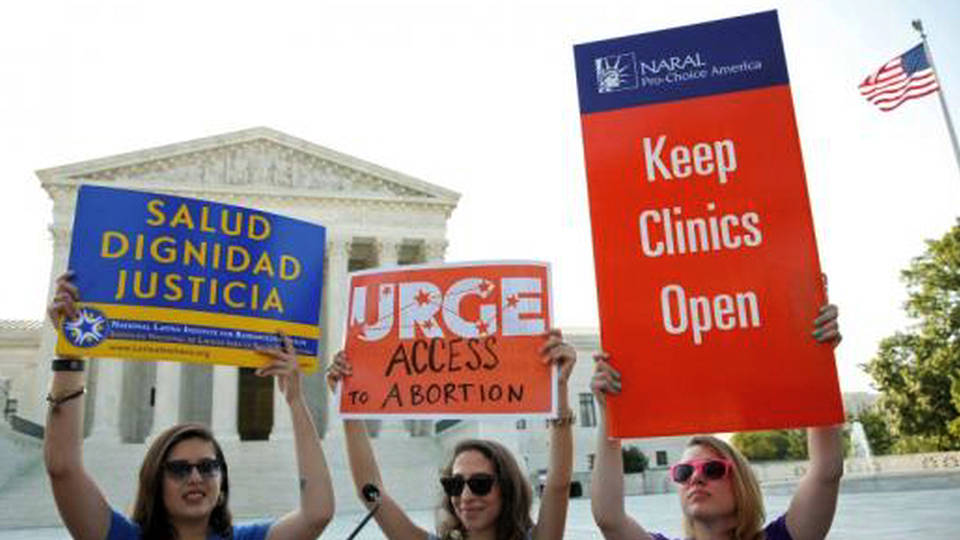
In the most significant victory for abortion rights in a generation, the Supreme Court has struck down provisions of a sweeping anti-choice law in Texas. Justice Anthony Kennedy joined Stephen Breyer and all three women on the court, striking down the restrictions as an undue burden on access to abortion. The lead plaintiff in the case, Amy Hagstrom Miller of Whole Woman’s Health, celebrated the ruling outside the Supreme Court.
Amy Hagstrom Miller: "From day one, Whole Woman’s Health rejected HB 2’s insulting premise, and we fought back. We took on the bully politicians, and we’ve struggled every day since then against anti-choice, regressive politics and our opposition’s best efforts to shut us down. And we won. Today we make history, and tomorrow we get back to work, so that every woman who seeks abortion services can get the healthcare she deserves, with the dignity and respect that we all deserve."
The Texas Legislature passed the sweeping anti-choice law in 2013 despite a people’s filibuster and an 11-hour stand by Texas State Senator Wendy Davis. The Supreme Court’s ruling strikes down provisions requiring abortion clinics to meet the costly standards of hospital-style surgery centers, and mandating that doctors obtain admitting privileges at a nearby hospital. Already, about half of Texas’ more than 40 abortion clinics have closed. If the court had allowed the provisions to go into full effect, advocates warned it would have left Texas with about 10 clinics clustered in four metropolitan areas. We’ll be joined by the lead plaintiff in Monday’s historic Supreme Court case, Amy Hagstrom Miller, after headlines.
TOPICS:
Abortion
Supreme Court
Supreme Court Rules Against Gun Ownership by Domestic Abusers

In another case Monday, the Supreme Court ruled against two men who argued they should be able to buy or own guns even though they had been convicted of domestic violence. Attorneys for the men argued they should be exempt from a federal ban because their acts of violence were committed "recklessly," not "intentionally." But the Supreme Court ruled six to two that even "reckless" domestic abuse counts. Justice Sonia Sotomayor joined Justice Clarence Thomas’ dissent over issues with treating reckless acts as violent offenses, but declined to join his defense of the Second Amendment in the case. The ruling comes after the massacre of 49 people in Orlando by Omar Mateen, who had a history of domestic violence. The FBI estimates at least 57 percent of mass shootings in recent years involved a shooter who killed an intimate partner or other family member. Click here to see our interview with writer Soraya Chemaly about the connection between domestic violence and mass shootings.
TOPICS:
Supreme Court
Gun Control
Supreme Court Ruling on Virginia Gov. McDonnell Could Make It Harder to Prosecute Corruption
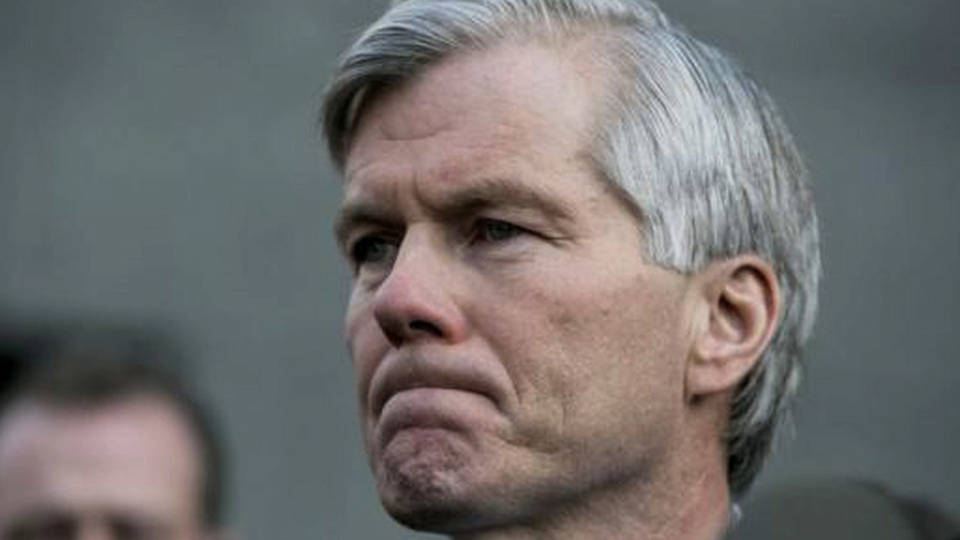
The Supreme Court also threw out the corruption conviction of former Virginia Governor Bob McDonnell, in a case that could make it harder to prosecute public officials for corruption. McDonnell and his wife were accused of accepting more than $175,000 in loans, vacations and luxury products in exchange for providing favors to Jonnie Williams, a businessman seeking to promote his diet supplement business. But in a ruling written by Chief Justice John Roberts, the court narrowed the definition of what constitutes corruption, saying it applies to formal activities, like filing a lawsuit or making an official determination, and not to acts like arranging meetings, hosting parties or calling officials to discuss Williams’ business.
TOPICS:
Supreme Court
Thousands Rally to Support U.K. Opposition Leader Corbyn as He Faces No-Confidence Vote
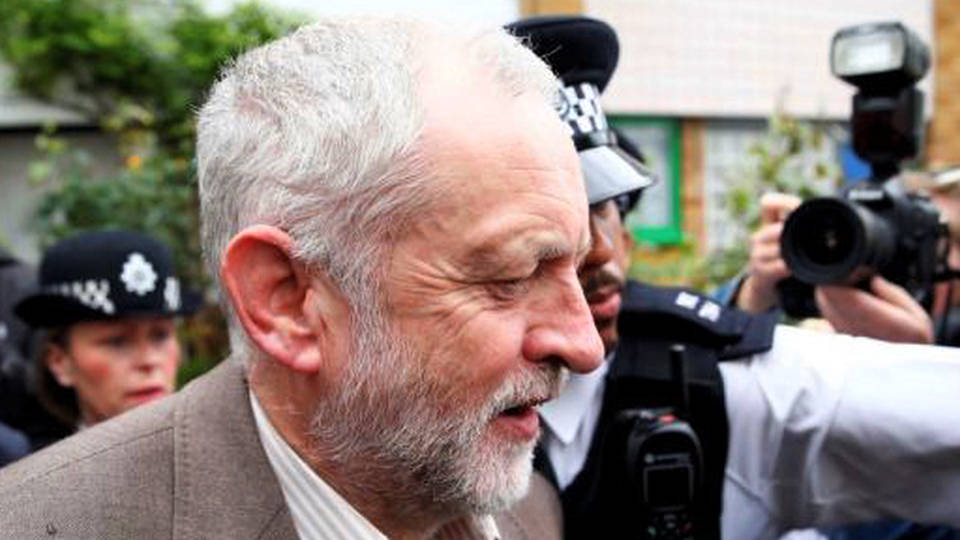
In London, thousands of people rallied outside Parliament to show support for opposition leader Jeremy Corbyn, who faces a no-confidence vote amid a revolt within his own Labour Party after Britain voted to leave the European Union. Addressing supporters, Corbyn called for unity against racism.
Jeremy Corbyn: "One of the horrible disfigurements of our society is racism, is intolerance, and the violence that’s often associated with it. And sadly, this has increased over the last few days. Can we all agree we are going to unite together as one people, one society, one community to oppose racism?"
Britain’s vote to leave the EU continues to send shock waves throughout the global economy. On Monday, Standard & Poor’s downgraded the U.K.’s credit rating from the perfect score of AAA down to AA.
TOPICS:
Britain
Elizabeth Warren Joins Hillary Clinton on Campaign Trail

In the United States, Massachusetts senator and progressive favorite Elizabeth Warren joined Democratic presidential candidate Hillary Clinton on the campaign trail Monday. On stage with Clinton in Cincinnati, Ohio, Warren took aim at Clinton’s Republican rival, Donald Trump.
Sen. Elizabeth Warren: "Donald Trump calls African Americans 'thugs,' Muslims 'terrorists,' Latinos 'rapists' and 'criminals,' and women 'bimbos.' Hillary Clinton believes that racism, hatred, injustice and bigotry have no place in our country. She fights for us. She fights for us, and we will fight for Hillary Clinton. She fights for us. Please join me in welcoming to the stage our next president, Hillary Clinton."
TOPICS:
Hillary Clinton
2016 Election
Report Finds Surge in Dark Money at State and Local Level
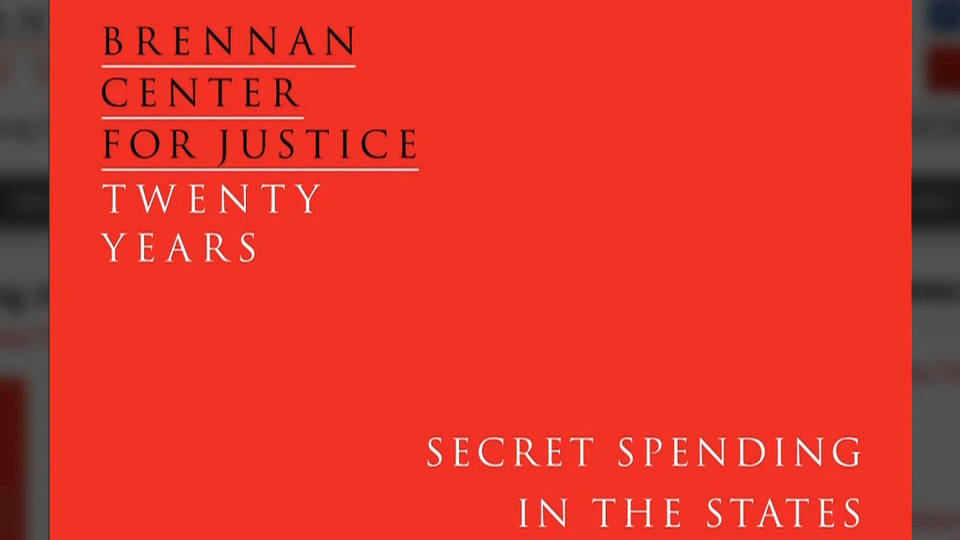
A new report has found a surge in the use of dark money donations at the state and local levels. The Brennan Center finds secret spending at the local level increased in recent years, in part because of so-called gray money from organizations funneling money through other groups in order to conceal where it’s coming from. Examples of local spending on races include "Mining companies secretly targeting a legislator who opposed permits. Food companies battling a ballot measure to add labeling requirements. Payday lenders supporting an attorney general who promised to shield them from regulation." Because of the lower cost of state and local elections, such donations can have an even bigger impact.
TOPICS:
Money & Politics
Florida Jury Finds Former Chilean Army Officer Liable for 1973 Murder of Víctor Jara
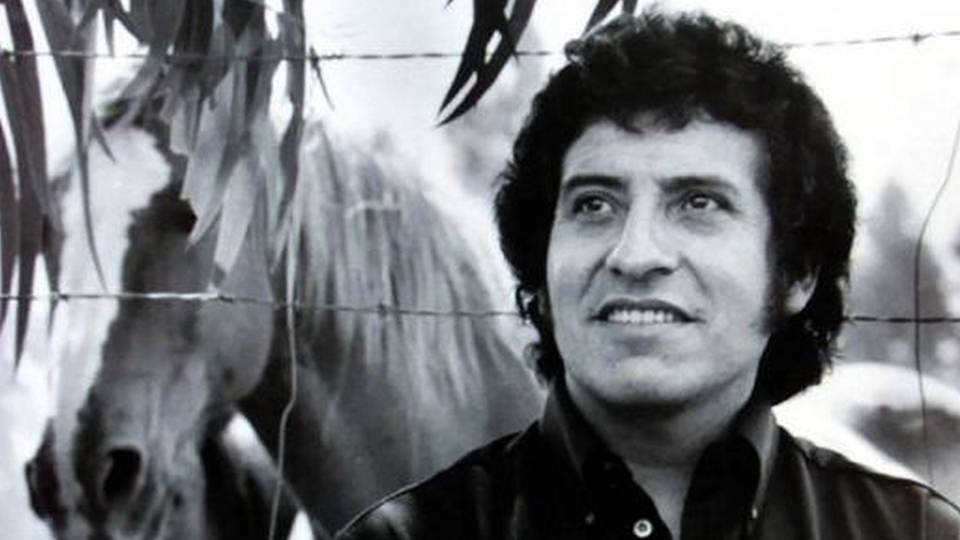
In Florida, a jury has found a former Chilean army officer liable for the murder of folk singer and activist Víctor Jara in 1973. Jara was tortured and shot more than 40 times in the days after dictator Augusto Pinochet seized power in a U.S.-backed coup. The verdict against Pedro Pablo Barrientos Nuñez marks what The Guardian newspaper called "one of the biggest and most significant legal human rights victories against a foreign war criminal in a US courtroom." Speaking on the steps of the Florida courthouse, Jara’s widow Joan Jara Turner said, "What we were trying to do for more than 40 years, for Víctor, has today come true." Barrientos could face extradition to Chile, where he could be brought up on criminal murder charges.
TOPICS:
1973 Chilean Coup
Chile
Report: U.S. Airstrikes Killed At Least 7 Taliban Hostages
The U.S. military says it is investigating reports at least seven people being held in a Taliban prison in Afghanistan were killed by U.S. airstrikes over the weekend. Some reports have said as many as 16 people were killed. Afghan officials have denied the reports. The news comes after President Obama expanded the U.S. military’s power to conduct airstrikes and assist Afghan forces fighting the Taliban.
TOPICS:
Afghanistan
Protesters Arrested Calling for Halt to Deportations in Connecticut, Georgia
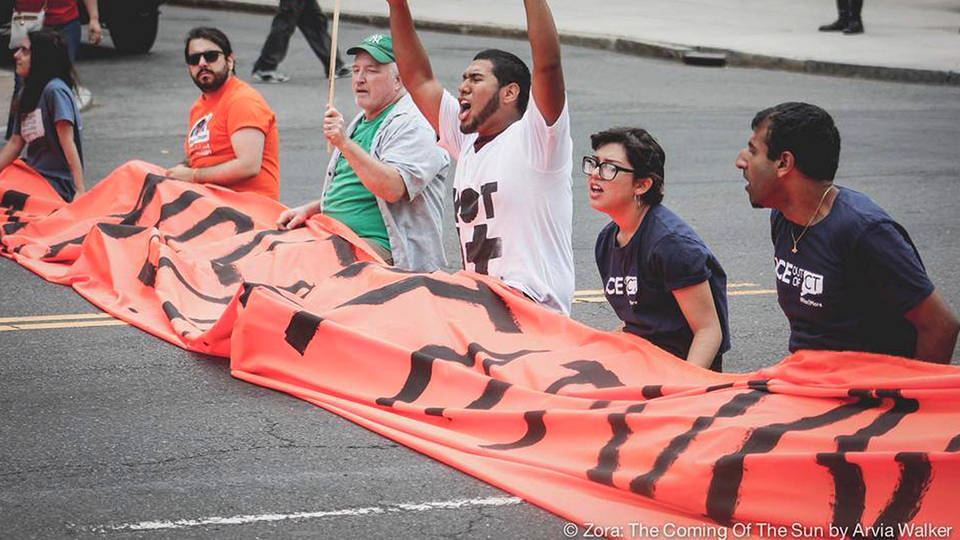
Undocumented immigrants and their supporters have staged actions across two states to call for a moratorium on deportations. The protests came after a split decision by the Supreme Court blocked President Obama’s plan to shield millions of people from deportation. In Hartford, Connecticut, protesters shut down Main Street outside a federal immigration office; nine people were arrested. In Atlanta, Georgia, four people were arrested after chaining themselves to ladders in a busy intersection.
TOPICS:
Immigration
Texas: Dimmit County Officials Reject Proposed Immigrant Detention Center
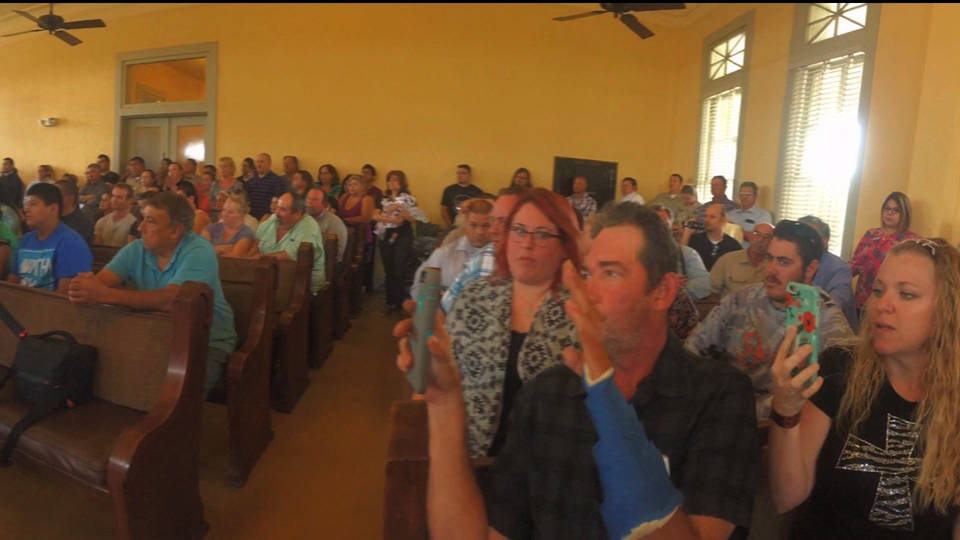
Meanwhile, officials in Dimmit County, Texas, about an hour north of the Mexico border, have rejected a proposed 500-bed family detention center. Their vote came Monday at a packed meeting, where residents spoke against a plan to use a former "man camp" for oil workers to hold women and children who have fled violence in Central America. Dimmit County’s vote comes after a similar rejection earlier this month by officials in nearby Jim Wells County. Commissioners there voted not to join a bid with federal officials and British security firm Serco, which has faced scandals at its family detention centers in Australia and lobbied heavily to enter the lucrative U.S. market.
TOPICS:
Immigration
Texas
Volkswagen Agrees to Pay $14.7 Billion over Emissions Cheating Scandal

Volkswagen has agreed to pay up to $14.7 billion over its diesel emissions cheating scandal, marking one of the largest consumer class action settlements in U.S. history. The payouts include buybacks for impacted vehicles and cash compensation to U.S. car owners. Volkswagen has admitted to rigging some 11 million vehicles worldwide. U.S. regulators say Volkswagen vehicles were emitting up to 40 times more pollution than standards allow.
Former Indiana University Student Charged in 2 Rape Cases Gets No Prison Time
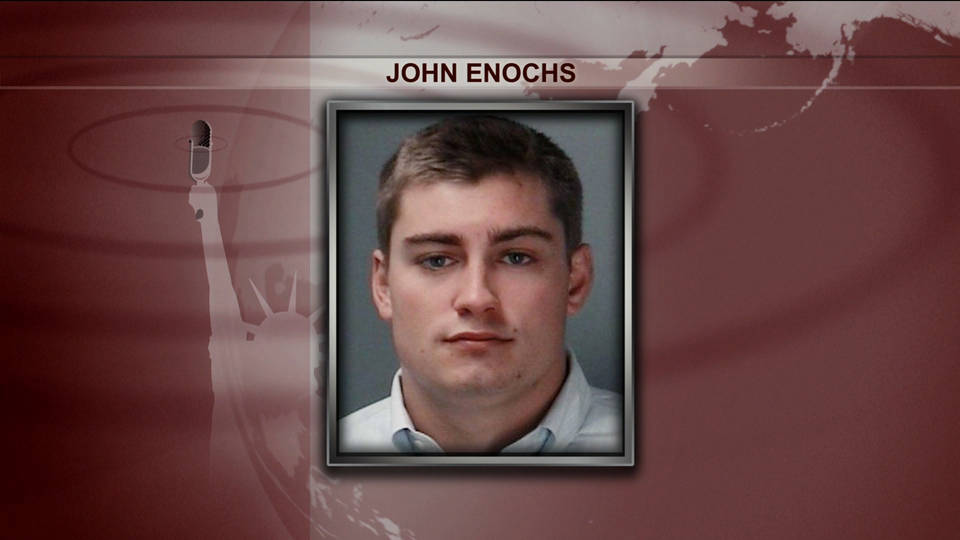
A former Indiana University student charged with rape in two separate cases has taken a plea deal and will avoid any prison time. John Enochs was accused in one case of holding a woman down at his fraternity house and raping her as she repeatedly told him to stop. In a second case, he was accused of raping a woman while she was blacked out. Enochs spent a day in jail last fall before posting bail. Under the plea deal, the rape charges will be dismissed, and he will be sentenced to one year of probation for battery.
TOPICS:
Indiana
Rape
Judge in Brock Turner Case Oversees Harsher Sentence for Latino in Similar Assault
The case has drawn comparisons to Brock Allen Turner, the former Stanford University swimmer sentenced to six months in jail after witnesses caught him in the act of raping an unconscious woman. Judge Aaron Persky expressed concerns a prison term would have a "severe impact" on Turner. But Judge Persky is also presiding over a similar case in which a Latino man is due to be sentenced to a much harsher term than Brock Allen Turner for a similar crime. The Guardian reports Raul Ramirez, a Salvadoran immigrant who admitted to sexually assaulting his roommate, and later apologized, faces three years in state prison under a deal overseen by Judge Persky. Stanford professor Michele Landis Dauber, who is overseeing an attempt to recall Persky, says the case vindicates concerns over the judge’s bias.
Stonewall Inn Becomes 1st National Monument for LGBTQ Rights
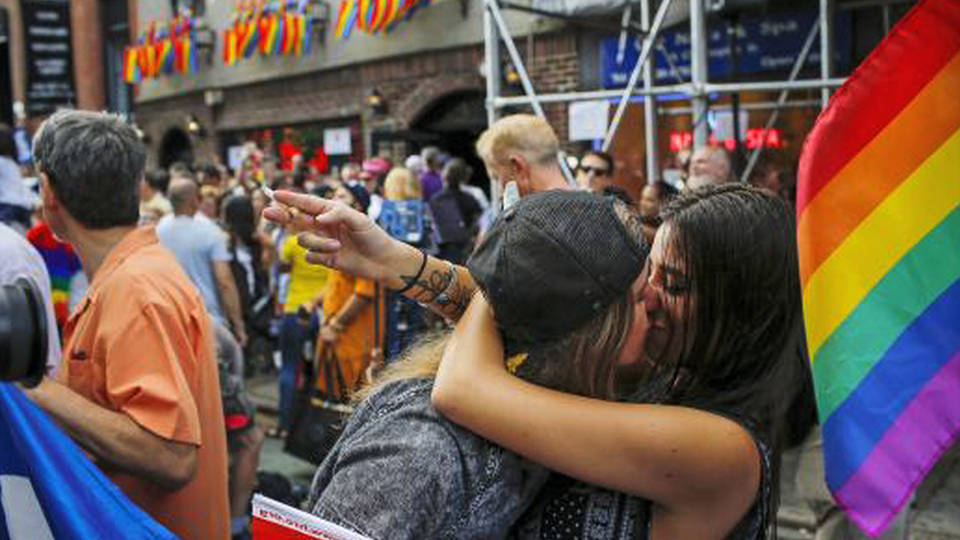
Here in New York City, local and federal officials gathered to unveil the Stonewall Inn as the first national monument to LGBTQ rights. In 1969, the inn was the site of a police raid that triggered an uprising and helped launch the modern-day LGBTQ rights movement. Speaking Monday, New York City Mayor Bill de Blasio thanked the Obama administration for the historic designation.
Mayor Bill de Blasio: "Brothers and sisters, I want to report to you that this time the government got it right. Something very good is happening today here in New York City. And I want to say on behalf of eight-and-a-half million New Yorkers, thank you, President Obama. Thank you for helping this nation forward, because this monument is part of our healing. It’s part of making us really one country."
TOPICS:
LGBT
Trailblazing Basketball Coach Pat Summitt Dies at 64
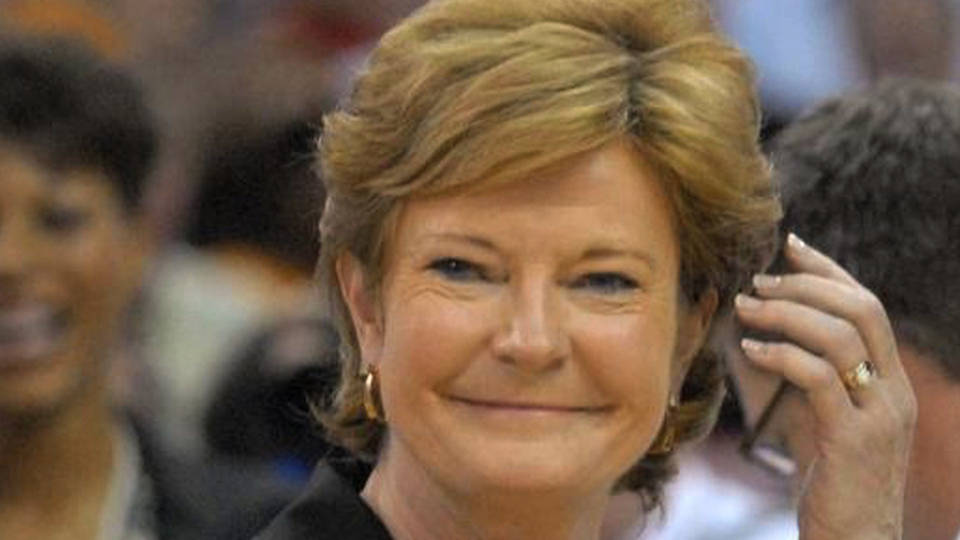
And Pat Summitt, the trailblazing basketball coach who presided over eight national basketball championships at the University of Tennessee and won more games than any other Division I coach, man or woman, has died. Summitt stepped down in 2012 after learning she had early-onset Alzheimer’s disease. She died surrounded by family in Knoxville, Tennessee, this morning. She was 64 years old.
Donate today:
Follow:



SPEAKING EVENTS

In the most significant victory for abortion rights in a generation, the Supreme Court has struck down provisions of a sweeping anti-choice law in Texas. Justice Anthony Kennedy joined Stephen Breyer and all three women on the court, striking down the restrictions as an undue burden on access to abortion. The lead plaintiff in the case, Amy Hagstrom Miller of Whole Woman’s Health, celebrated the ruling outside the Supreme Court.
Amy Hagstrom Miller: "From day one, Whole Woman’s Health rejected HB 2’s insulting premise, and we fought back. We took on the bully politicians, and we’ve struggled every day since then against anti-choice, regressive politics and our opposition’s best efforts to shut us down. And we won. Today we make history, and tomorrow we get back to work, so that every woman who seeks abortion services can get the healthcare she deserves, with the dignity and respect that we all deserve."
The Texas Legislature passed the sweeping anti-choice law in 2013 despite a people’s filibuster and an 11-hour stand by Texas State Senator Wendy Davis. The Supreme Court’s ruling strikes down provisions requiring abortion clinics to meet the costly standards of hospital-style surgery centers, and mandating that doctors obtain admitting privileges at a nearby hospital. Already, about half of Texas’ more than 40 abortion clinics have closed. If the court had allowed the provisions to go into full effect, advocates warned it would have left Texas with about 10 clinics clustered in four metropolitan areas. We’ll be joined by the lead plaintiff in Monday’s historic Supreme Court case, Amy Hagstrom Miller, after headlines.
TOPICS:
Abortion
Supreme Court
Supreme Court Rules Against Gun Ownership by Domestic Abusers

In another case Monday, the Supreme Court ruled against two men who argued they should be able to buy or own guns even though they had been convicted of domestic violence. Attorneys for the men argued they should be exempt from a federal ban because their acts of violence were committed "recklessly," not "intentionally." But the Supreme Court ruled six to two that even "reckless" domestic abuse counts. Justice Sonia Sotomayor joined Justice Clarence Thomas’ dissent over issues with treating reckless acts as violent offenses, but declined to join his defense of the Second Amendment in the case. The ruling comes after the massacre of 49 people in Orlando by Omar Mateen, who had a history of domestic violence. The FBI estimates at least 57 percent of mass shootings in recent years involved a shooter who killed an intimate partner or other family member. Click here to see our interview with writer Soraya Chemaly about the connection between domestic violence and mass shootings.
TOPICS:
Supreme Court
Gun Control
Supreme Court Ruling on Virginia Gov. McDonnell Could Make It Harder to Prosecute Corruption

The Supreme Court also threw out the corruption conviction of former Virginia Governor Bob McDonnell, in a case that could make it harder to prosecute public officials for corruption. McDonnell and his wife were accused of accepting more than $175,000 in loans, vacations and luxury products in exchange for providing favors to Jonnie Williams, a businessman seeking to promote his diet supplement business. But in a ruling written by Chief Justice John Roberts, the court narrowed the definition of what constitutes corruption, saying it applies to formal activities, like filing a lawsuit or making an official determination, and not to acts like arranging meetings, hosting parties or calling officials to discuss Williams’ business.
TOPICS:
Supreme Court
Thousands Rally to Support U.K. Opposition Leader Corbyn as He Faces No-Confidence Vote

In London, thousands of people rallied outside Parliament to show support for opposition leader Jeremy Corbyn, who faces a no-confidence vote amid a revolt within his own Labour Party after Britain voted to leave the European Union. Addressing supporters, Corbyn called for unity against racism.
Jeremy Corbyn: "One of the horrible disfigurements of our society is racism, is intolerance, and the violence that’s often associated with it. And sadly, this has increased over the last few days. Can we all agree we are going to unite together as one people, one society, one community to oppose racism?"
Britain’s vote to leave the EU continues to send shock waves throughout the global economy. On Monday, Standard & Poor’s downgraded the U.K.’s credit rating from the perfect score of AAA down to AA.
TOPICS:
Britain
Elizabeth Warren Joins Hillary Clinton on Campaign Trail

In the United States, Massachusetts senator and progressive favorite Elizabeth Warren joined Democratic presidential candidate Hillary Clinton on the campaign trail Monday. On stage with Clinton in Cincinnati, Ohio, Warren took aim at Clinton’s Republican rival, Donald Trump.
Sen. Elizabeth Warren: "Donald Trump calls African Americans 'thugs,' Muslims 'terrorists,' Latinos 'rapists' and 'criminals,' and women 'bimbos.' Hillary Clinton believes that racism, hatred, injustice and bigotry have no place in our country. She fights for us. She fights for us, and we will fight for Hillary Clinton. She fights for us. Please join me in welcoming to the stage our next president, Hillary Clinton."
TOPICS:
Hillary Clinton
2016 Election
Report Finds Surge in Dark Money at State and Local Level

A new report has found a surge in the use of dark money donations at the state and local levels. The Brennan Center finds secret spending at the local level increased in recent years, in part because of so-called gray money from organizations funneling money through other groups in order to conceal where it’s coming from. Examples of local spending on races include "Mining companies secretly targeting a legislator who opposed permits. Food companies battling a ballot measure to add labeling requirements. Payday lenders supporting an attorney general who promised to shield them from regulation." Because of the lower cost of state and local elections, such donations can have an even bigger impact.
TOPICS:
Money & Politics
Florida Jury Finds Former Chilean Army Officer Liable for 1973 Murder of Víctor Jara

In Florida, a jury has found a former Chilean army officer liable for the murder of folk singer and activist Víctor Jara in 1973. Jara was tortured and shot more than 40 times in the days after dictator Augusto Pinochet seized power in a U.S.-backed coup. The verdict against Pedro Pablo Barrientos Nuñez marks what The Guardian newspaper called "one of the biggest and most significant legal human rights victories against a foreign war criminal in a US courtroom." Speaking on the steps of the Florida courthouse, Jara’s widow Joan Jara Turner said, "What we were trying to do for more than 40 years, for Víctor, has today come true." Barrientos could face extradition to Chile, where he could be brought up on criminal murder charges.
TOPICS:
1973 Chilean Coup
Chile
Report: U.S. Airstrikes Killed At Least 7 Taliban Hostages
The U.S. military says it is investigating reports at least seven people being held in a Taliban prison in Afghanistan were killed by U.S. airstrikes over the weekend. Some reports have said as many as 16 people were killed. Afghan officials have denied the reports. The news comes after President Obama expanded the U.S. military’s power to conduct airstrikes and assist Afghan forces fighting the Taliban.
TOPICS:
Afghanistan
Protesters Arrested Calling for Halt to Deportations in Connecticut, Georgia

Undocumented immigrants and their supporters have staged actions across two states to call for a moratorium on deportations. The protests came after a split decision by the Supreme Court blocked President Obama’s plan to shield millions of people from deportation. In Hartford, Connecticut, protesters shut down Main Street outside a federal immigration office; nine people were arrested. In Atlanta, Georgia, four people were arrested after chaining themselves to ladders in a busy intersection.
TOPICS:
Immigration
Texas: Dimmit County Officials Reject Proposed Immigrant Detention Center

Meanwhile, officials in Dimmit County, Texas, about an hour north of the Mexico border, have rejected a proposed 500-bed family detention center. Their vote came Monday at a packed meeting, where residents spoke against a plan to use a former "man camp" for oil workers to hold women and children who have fled violence in Central America. Dimmit County’s vote comes after a similar rejection earlier this month by officials in nearby Jim Wells County. Commissioners there voted not to join a bid with federal officials and British security firm Serco, which has faced scandals at its family detention centers in Australia and lobbied heavily to enter the lucrative U.S. market.
TOPICS:
Immigration
Texas
Volkswagen Agrees to Pay $14.7 Billion over Emissions Cheating Scandal

Volkswagen has agreed to pay up to $14.7 billion over its diesel emissions cheating scandal, marking one of the largest consumer class action settlements in U.S. history. The payouts include buybacks for impacted vehicles and cash compensation to U.S. car owners. Volkswagen has admitted to rigging some 11 million vehicles worldwide. U.S. regulators say Volkswagen vehicles were emitting up to 40 times more pollution than standards allow.
Former Indiana University Student Charged in 2 Rape Cases Gets No Prison Time

A former Indiana University student charged with rape in two separate cases has taken a plea deal and will avoid any prison time. John Enochs was accused in one case of holding a woman down at his fraternity house and raping her as she repeatedly told him to stop. In a second case, he was accused of raping a woman while she was blacked out. Enochs spent a day in jail last fall before posting bail. Under the plea deal, the rape charges will be dismissed, and he will be sentenced to one year of probation for battery.
TOPICS:
Indiana
Rape
Judge in Brock Turner Case Oversees Harsher Sentence for Latino in Similar Assault
The case has drawn comparisons to Brock Allen Turner, the former Stanford University swimmer sentenced to six months in jail after witnesses caught him in the act of raping an unconscious woman. Judge Aaron Persky expressed concerns a prison term would have a "severe impact" on Turner. But Judge Persky is also presiding over a similar case in which a Latino man is due to be sentenced to a much harsher term than Brock Allen Turner for a similar crime. The Guardian reports Raul Ramirez, a Salvadoran immigrant who admitted to sexually assaulting his roommate, and later apologized, faces three years in state prison under a deal overseen by Judge Persky. Stanford professor Michele Landis Dauber, who is overseeing an attempt to recall Persky, says the case vindicates concerns over the judge’s bias.
Stonewall Inn Becomes 1st National Monument for LGBTQ Rights

Here in New York City, local and federal officials gathered to unveil the Stonewall Inn as the first national monument to LGBTQ rights. In 1969, the inn was the site of a police raid that triggered an uprising and helped launch the modern-day LGBTQ rights movement. Speaking Monday, New York City Mayor Bill de Blasio thanked the Obama administration for the historic designation.
Mayor Bill de Blasio: "Brothers and sisters, I want to report to you that this time the government got it right. Something very good is happening today here in New York City. And I want to say on behalf of eight-and-a-half million New Yorkers, thank you, President Obama. Thank you for helping this nation forward, because this monument is part of our healing. It’s part of making us really one country."
TOPICS:
LGBT
Trailblazing Basketball Coach Pat Summitt Dies at 64

And Pat Summitt, the trailblazing basketball coach who presided over eight national basketball championships at the University of Tennessee and won more games than any other Division I coach, man or woman, has died. Summitt stepped down in 2012 after learning she had early-onset Alzheimer’s disease. She died surrounded by family in Knoxville, Tennessee, this morning. She was 64 years old.
Donate today:
Follow:




SPEAKING EVENTS

Sotomayor "Tells It Like It Is" & Slams Racial Profiling, Illegal Search and Seizure in Scathing Dissent
WORK WITH DN!

News Producer
Office Coordinator
Senior TV Producer
WEB EXCLUSIVE

Part 2: Will Peace Agreement Between Colombia and FARC End Years of War, Unrest and Destabilization?
207 West 25th Street, 11th Floor
New York, New York 10001, United States
---------------------
---------------------


No comments:
Post a Comment